What ails Bangladesh's publishing industry?
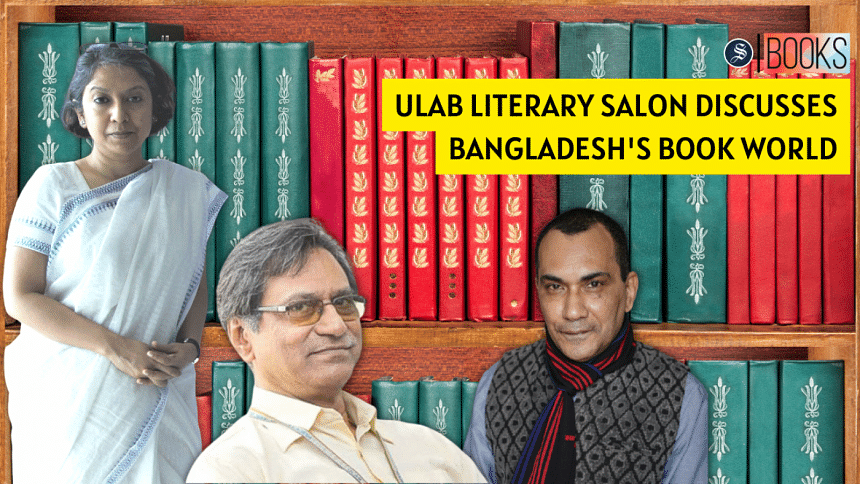
On November 12, the ULAB Literary Salon 6 organised by the Department of English and Humanities at ULAB discussed the issues hindering Bangladesh's book publishing industry. Mahrukh Mohiuddin, Managing Director of University Press Limited, spoke with Professor Kaiser Haq, poet, academic and Advisor to ULAB Press, with the conversation moderated by Sudeep Chakravarti, writer, editor and Visiting Professor of South Asian Studies at ULAB.
Sudeep Chakravarti: Let me begin with the reality that in Bangladesh, the world of books revolves around the Ekushey Boi Mela. When that is done, it is as if all the book sales for the entire country is done for the year and book sales begin to peak again when the next boi mela comes around.
Is it really an ideal situation?
Mahrukh Mohiuddin: Every year in February, we say that we need to have these discussions but it hardly ever happens. So, it is really refreshing to be talking about this in November. I just want to say first that when we say publishing, it is a wide category from creative to academic books.
I would say Ekushey Boi Mela is critical for creative Bangla books. Therefore, it is really concerning that much of the sales happen within one month of the year. All our activities of the publishing industry are centred around that; authors expect their books to come out during the next Boi Mela.
And we have to balance that on the production end as well. We have to convince authors that a book can be a celebration on its own and that we do not need to focus on one particular event to showcase their books. That seems to be taking some traction now, but it is not enough.
A number of factors are involved, such as how the book sales should happen, and who should be ideally instrumental in making or ensuring these book sales.
I like to say that the publishing industry is a part of a knowledge ecosystem and that includes educational institutions, libraries across the country and of course where the authors are coming from. If we don't have these other players, such as public libraries, we are not supported to bring out books.
Kaiser Haq: We had a publishing industry even before the Ekushey Boi Mela. In fact, we even inherited a part of the colonial publishing industry after the Partition. The staple of publishing was in textbooks and I still think that textbooks are the staple of the industry.
Before the bookfair started, the situation was like any other country. Books were published and those who were interested would browse the bookshops and buy the books. Boi Mela was a big step forward. Perhaps, the idea came from the Kolkata Boi Mela and people might have felt that we should have a Boi Mela here and Ekushey became the focus.
Once that happened, the industry got a boost. This is because readers, writers and publishers had a point of focus. The readers knew that if they went during this month, they would be able to browse the shops and pick up books. Writers found a deadline that they must finish something by this date to launch a book. Publishers realised that it was good for them.
So the Boi Mela has done a lot to make the industry function better. But as you rightly pointed out, Sudeep, the industry cannot depend only on the book fair. It is important to explore other avenues of marketing books throughout the year as it is done in other countries.
Nowadays, you can order books online and there are several outlets. There is Rokomari.com; there are even bookshops such as Pathak Shamabesh and Baatighar who have their own delivery service.
The next step would be to print-on-demand because that would make it much more economically easy as you will not have to have a warehouse base to stock and all that. That, and also e-books. That has also started. Rokomari is now producing ebooks, and with the new ebook readers in Kindle, I think readers feel much more comfortable.
Mahrukh Mohiuddin: I think the people and the market are ready to some extent, but it is just that there are so many free ebooks or so called ebooks or pdf books available that the habit of buying ebooks is not there. I think the regulatory situation is far from addressing this issue. Even our books are available as pdfs and it is not possible for us to hunt down all the sites where our books are available one by one and report them. So we are sort of in a conundrum about ebooks.
Sudeep Chakravarti: What are other regulatory aspects of the publishing industry the government needs to address, such as intellectual property rights, duties, cost of paper? Or, is it even treating publishing as an industry or just as a pastime?
Kaiser Haq: I don't think any government agency is going to subsidise the book publishing industry. Even if you do have subsidies, the agency, which is going to be giving the subsidies, may not be considering the merit of the books; external considerations may come in and that is likely to lead to corruption.
But institutions like Bangla Academy do have a budget for publishing and they are supposed to help the literary industry here produce translations among other works. They could do a better job I think. I would think that if the Bangla Academy went to co-publish with publishers in India, UK and North America, that would be an excellent way to push our literature. Without co-publishing, it is not possible to have a wide reach nowadays. Co-publishing has become easy because of the technology nowadays, but it requires some smart negotiating with other publishers. I don't think they have even tried that.
Mahrukh Mohiuddin: I think I would like to humbly disagree with the role of the government in aiding the publishing industry. Just one data would make it very clear. There is close to about 61% duty on imported paper. And the price we pay for the local paper takes advantage of that extra duty, and practically we are stuck with buying low quality local paper with questionable output often. Ultimately, it is the reader who is paying the price. What has happened in the last few months with the inflation and the rise in dollar prices is that there is a crisis in paper, and we are unsure if we will be able to publish the planned number of books for Ekushey or Dhaka Lit Fest, which are coming up.
Kaiser Haq: But you are not disagreeing with anything I said. I mean, it's not a question about government subsidies. Lowering the duties is a separate issue, one which we should really lobby for.
The quality of paper which is available for books is not appropriate. You have this same kind of paper with whatever you have to publish, with the result that any book which is substantial in size becomes an instrument to exercise with, it is so heavy.
Yet, next door in India, so many publishers are producing hefty books that are so light with paper of finer quality. I do not see why they cannot manufacture such papers here. I mean if they can't, why not import it without crippling duties?
Mahrukh Mohiuddin: On another note, I grew up listening to these narratives about how it is so difficult to get authors to agree to have their works looked at and edited. I think we have come some distance from there. This is my day to day struggle: dealing with manuscripts, negotiating with authors about the timeline and a bulk of the time spent is really on the editing.
For Bangla publishing, it is a sheer economic reality that most publishers do not have in-house editors to look at the manuscripts they are publishing. So, much of the burden is ultimately on the author to get the book ready to a certain extent, and the publisher is just there to do the cosmetic work on the book and the text.
ULAB Literary Salon takes places once every month, focusing each time on a theme related to South Asian literature, history and culture. Fore more updates, follow their Facebook and Instagram pages.
This conversation was condensed and edited for clarity.

 For all latest news, follow The Daily Star's Google News channel.
For all latest news, follow The Daily Star's Google News channel. 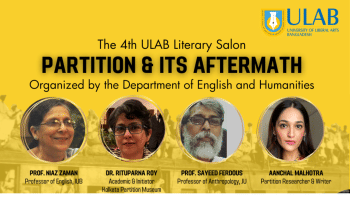

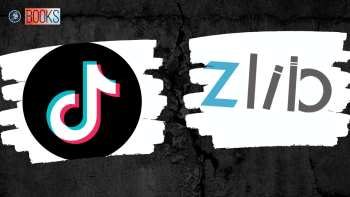
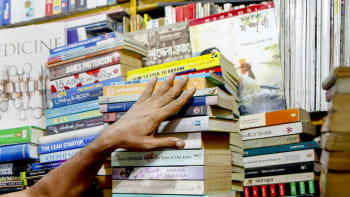
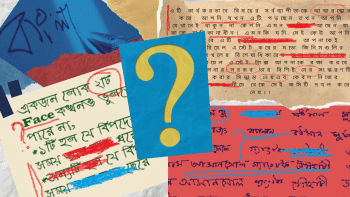







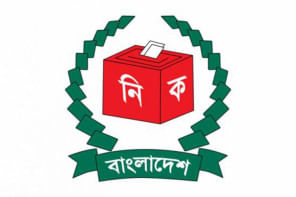
Comments